Quran: [17:36] "You shall not accept any information, unless you verify it for yourself. I have given you the hearing, the eyesight, and the brain, and you are responsible for using them."
Quran: [49:12] "O ye who believe! Avoid suspicion as much (as possible): for suspicion in some cases is a sin: And spy not on each other behind their backs. Would any of you like to eat the flesh of his dead brother? Nay, ye would abhor it...But fear Allah. For Allah is Oft-Returning, Most Merciful."
Taxi Ile Maurice
Taxi Mauritius

var message="Story of Al-Isra' wal-Mi'raj (The Night Journey)!" var neonbasecolor="gray" var neontextcolor="yellow" var flashspeed=100 //in milliseconds ///No need to edit below this line///// var n=0 if (document.all||document.getElementById){ document.write(' ') for (m=0;m '+message.charAt(m)+' ') document.write(' ') } else document.write(message) function crossref(number){ var crossobj=document.all? eval("document.all.neonlight"+number) : document.getElementById("neonlight"+number) return crossobj } function neon(){ //Change all letters to base color if (n==0){ for (m=0;m
In the name of allah, the beneficent the merciful..
On 27th Rajab, all the Muslim believers celebrate this as a grand day of Mi'raj as "Grand Eid" and all the Muslims should be proud to have such a prophet like Holy Prophet Muhammad, peace and blessing be upon him and his progeny (Ahlul Bayt), to whom Almighty Allah (swt) was also proud and had invited him to visit and talked with very nearer distance as mentioned in the Glorious Qur'an 53:9.
Also note that, the Mi'raj of the Holy Prophet Muhammad, peace and blessing be upon him and his progeny has taken place more than once. However, it should be mentioned that Mi'raj in which the daily Salat was made incumbent, without doubt, occurred before the death of Hazrat Abu Talib, who passed away in the 10th year of Besat. Unmistakably, from the Ahadith and books of history, it is mentioned that on the night of Mi'raj, Allah (swt) gave the order of the five daily Salat as being mandatory upon the Islamic Nation.
The darkness of the night had spread across the horizon and silence reigned over the face of nature. The time had arrived when the living creatures take rest and sleep so that they might recuperate from their activities of the previous day. Holy Prophet Muhammad (saw), was also not an exception to this law of nature and he wished to take rest after offering his prayers (Salat) in the house of "Umm-e-Hani", the daughter of his uncle and sister of Amir al-Mominin Ali (pbuh) in the blessed city of Makkah. However, suddenly he heard a voice; it was the voice of the Archangel Jibreel/Gabriel (pbuh) who said to him:
"This night you have to perform a very unique journey and I have been ordered to remain with you. You will have to traverse different parts of the world mounted on an animal named al-Buraq (a name derived from �Barq�, meaning lightning). Where he found an animal smaller than a mule but slightly bigger than a donkey. The animal, which was a quadruped, also had two wings and floated easily as he moved with unimaginable speed.
Journey of Al-Isra
Holy Prophet Muhammad, peace and blessing be upon him and his progeny began his historical night journey, along with the trusted protector of the revelation, the Angel Jibreel (pbuh) from the house of "Umm-e-Hani", with the aide of his steed al-Buraq.
"After some time, Angel Jibreel (pbuh) stopped Holy Prophet Muhammad (saw) and said to perform the Salat. Holy Prophet Muhammad (saw) dismounted from al-Buraq and performed Salat. Jibreel (pbuh) said, 'Do you know where you just prayed?' Holy Prophet Muhammad (saw) replied to him in negative. Jibreel (pbuh) said, 'In Taibah (Madinah), that place where your travelers will go.' After this, Holy Prophet Muhammad (saw) got back onto al-Buraq and continued the journey."
"Once again, Angel Jibreel (pbuh) stopped Holy Prophet Muhammad (saw) and said, 'Perform the Salat.' Holy Prophet Muhammad, peace and blessing be upon him and his progeny once again dismounted al-Buraq, and performed Salat there. Jibreel (pbuh) asked Holy Prophet Muhammad (saw), 'Do you know where you just prayed?' It is the Mountain of Sinai - the place where Prophet Musa / Moses (pbuh) spoke to Allah (swt)."
"Once again, Holy Prophet Muhammad, peace and blessing be upon him and his progeny ascended al-Buraq and continued. Shortly afterwards, Angel Jibreel (pbuh) said, 'Get down and perform the Salat.' Then again Jibreel (pbuh) questioned, 'Do you know where you just prayed?' Holy Prophet Muhammad (saw) replied in negative, to which he answered, In Bait al-Laham (Bethlehem) - the place which is near to Baitul Maqdis and this is the place where Prophet Isa (Jesus) al-Masih (pbuh) was born."
Then they reached Baitul Maqdis, which is located in today's Zionist occupied Jerusalem and is also known as Masjid al-Aqsa (the Furthest Mosque) and Holy Prophet Muhammad (saw), proceeded to tie the reins of al-Buraq to the same ring that the great Prophets (before him) used to tie their animal to. After this Holy Prophet Muhammad, peace and blessing be upon him and his progeny entered the Masjid and it was here that he met Ibrahim/Abraham, Musa/Moses, Isa/Jesus and the rest of the Prophets (pbut). They all gathered around him and they all proceeded to get ready for Salat. Holy Prophet Muhammad, peace and blessing be upon him and his progeny had no doubt that the Salat would be lead by Angel Jibreel (pbuh), however when the lines for the Salat were being formed, Angel Jibreel (pbuh) placed his hand on the shoulder of Holy Prophet Muhammad (saw) and pushed forward. Angel Jibreel (pbuh) also took part in the Salat behind him along with the various Prophets (pbut).
Journey of Al-Mi'raj
On the second part of his journey, he proceeded from this spot to the skies (heavens). Holy Prophet Muhammad (saw), then observed the stars and the systems of the world and conversed with the souls of the previous prophets, and also with the angels of the heavens, peace and blessing be upon them all. Holy Prophet Muhammad (saw) saw the centre of the tortures and the blessings (hell and heaven) and became fully aware of the secrets of creation, the extent of the universe and the signs of the Omnipotent Allah (swt).
Then Holy Prophet Muhammad, peace and blessing be upon him and his progeny, continued his journey and reached Sidrat ul Muntaha (Beyond this point nobody has access including Angel Jibreel (pbuh)). There he found it fully covered with splendor, magnificence and grandeur, and then he returned back by the way he had traveled. Holy Prophet Muhammad (saw), first came to Baitul Maqdis and then to Makkah. It was daybreak when he dismounted at the house of Umm-e-Hani from al-Buraq which had taken him into space. Holy Prophet Muhammad, peace and blessing be upon him and his progeny related this matter to Umm-e-Hani and the following night, he made it known to the assemblies of Quraysh as well. The word of his travels spread from mouth to mouth amongst all the groups, and now more than ever, the Quraysh were upset (with him).
According to an old tradition, the Quraysh asked the account of its structure, and Holy Prophet Muhammad, peace and blessing be upon him and his progeny, not only described the physical particularities of Baitul Maqdis, rather, he even informed them of the event that took place between Baitul Maqdis and Makkah. Holy Prophet Muhammad (saw) said to them that he met the caravan of such and such tribe who lost their camel and he asked them to give him water and Holy Prophet Muhammad (saw) drank water from their container. So they asked about the Quraysh caravan and he replied to them that he saw them at Taim. So Quraysh became very excited and it was not long after that the travelers (of that caravan) reported the exact events (as had occurred).
Proof of Isra and Miraj (Shab-e-Mi'raj, Lailat-ul-Miraj) in the Glorious Qur'an:
The Heavenly Journey of Holy Prophet Muhammad, peace and blessing be upon him and his progeny has been straight forwardly explained in two Surahs of the Glorious Qur'an.
In the Surah al-Isra (Surah 17 - also known as Bani Isra'il), it is mentioned:
" Glory be to Him Who made His servant (Prophet Muhammad) to go on a night from the Sacred Mosque (Masjid al-Haram) to the Farthest Mosque (Masjid al-Aqsa) of which We have blessed the precincts, so that We may show to him some of Our signs; surely He is the Hearing, the Seeing." (Qur'an, 17:1)
From this verse, we come to the conclusion that Holy Prophet Muhammad, peace and blessing be upon him and his progeny traveled with his physical body (servant) through the worlds of Ascension. Further, by the greatness of the Hidden Power, Holy Prophet Muhammad (saw) was able to complete this journey in a very short span of time.
Allah (swt) starts His speech with the phrase (Subhan) which denotes the fact that Allah (swt) is free from all deficiencies - but He does not stop here. Rather, He makes the ascension the reason for His greatness by saying 'made to travel' (Isra) so that others do not imagine that the means of this journey was through causes of the natural world and with normal, ordinary means of transportation. This would have made his journey something that could have been denied. Rather, this journey was accomplished by relying upon the power of Allah (swt) and His specific and special blessings.
Although this verse states that the start of the journey was from Masjid al-Haram and ended at Masjid al-Aqsa, this does not contradict the fact that Holy Prophet Muhammad, peace and blessing be upon him and his progeny in addition to this trip, also had other trips towards the higher world, since another part of the journey of Ascension of Holy Prophet Muhammad (saw) is explained in verses of Surah an-Najm.
From the time Holy Prophet Muhammad, peace and blessing be upon him and his progeny told the Quraysh, 'I saw the angel of revelation (when he received the first revelation) in his original and pure state,' all the Quraysh raised up to mock him. Glorious Qur'an, in response to the thoughts of the ignorant people replies:
"Will you then argue with him about what he saw? He certainly saw him (Jibreel) during his other ascent to the Lote-tree (in the seven heavens) near which is Paradise. When the tree was covered with a covering, (Muhammad's) eyes did not deceive him, nor did they lead him to falsehood. He certainly saw the greatest (signs) of the existence of his Lord." (Glorious Qur'an, 53:12-18)
The object of this grand journey was to make known to Holy Prophet Muhammad, peace and blessing be upon him and his progeny the various aspects of the existence of the great universe.
A person asked our 4th Imam, Imam Ali bin Hussain (as): "Is there a particular place for Allah (swt)?"
Imam Ali bin Hussain (as) replied: "no."
The man said: "Then why did He make his Holy Prophet Muhammad, peace and blessing be upon him and his progeny, journey through the skies?"
Imam Ali bin Hussain (as), replied: "He made him ascend so that he might become aware of the expanse of the universe and see and hear wonderful things, the like of which had not been seen and heard by the eyes and ears before."
Mi'raj (Night Ascension) or Miraj-un-Nabi and Modern Science:
It has been an on going discussion and debate for hundreds of years concerning the method of travel of Holy Prophet Muhammad, peace and blessing be upon him and his progeny during the Mi'raj. Many things have been said regarding this journey and its being physical or only spiritual even though from the Glorious Qur'an and the Ahadith there is no doubt that it was a physical ascension.
However, one problem from the point of view of science prevented some people in believing the reality and thus, the Mi'raj of Holy Prophet Muhammad (saw) was recorded as being simply spiritual. Another group went a step further and believed that this complete event was simply a dream and that Holy Prophet Muhammad (saw) experienced the Mi'raj during his sleep!
The heavenly journey went against the scientific and natural laws of today such as: the law of gravity of the earth; its speed of travel of 25,000 miles per hour; the weightlessness of an object that is outside of the airspace of earth; the fact that it is not possible to breathe the air that is outside our atmosphere; the various cosmic rays; meteorites and air pressure; and the speed of light that goes at the speed of approximately 300,000 kilometers a second; and other such examples.
Fortunately however, it must be known that through scientific research and investigation, the space scientists of the Soviet Union successfully launched Sputnik I. The world's first artificial satellite was about the size of a basketball, weighed only 183 pounds, and took about 98 minutes to orbit the Earth on its elliptical path, on October 4, 1957. They were able to demonstrate to mankind with ease, that they could overcome such problems as the gravitational pull, cosmic rays, problems with breathing in space, and others, through various technologically designed and built equipment and instruments.
Even today, the space science research is ever increasing and the scientists and researchers are confident that in a matter of time, they will be able to place life on one of the planets in our solar system; just as today, they have opened up the exploration to the moon and the planet Mars.
These scientific progresses and advancements in technology and industry are a clear proof that such a celestial travel (that of Holy Prophet Muhammad, peace and blessing be upon him and his progeny on the night of Mi'raj) is possible and can not be classified as something that was impossible.
Source: http://www.khilafatworld.com/2011/06/story-of-al-isra-wal-miraj-night.html
QURAN All Chapters 1) Al-Fatihah (7) 2) Al-Baqarah (286) 3) 'Āli `Imrān (200) 4) An-Nisā' (176) 5) Al-Mā'idah (120) 6) Al-'An`ām (165) 7) Al-'A`rāf (206) 8) Al-'Anfāl (75) 9) At-Tawbah (129) 10) Yunus (109) 11) Hud (123) 12) Yusuf (111) 13) Ar Ra'd (43) 14) 'Ibrahim (52) 15) Al Hijr (99) 16) An Nahl (128) 17) Al 'Isra' (111) 18) Al Kahf (110) 19) Maryam (98) 20) Taha (135) 21) Al 'Anbya' (112) 22) Al Hajj (78) 23) Al Muminun (118) 24) An Nur (64) 25) Al Furqan (77) 26) Ash Shu`ara' (227) 27) An Naml (93) 28) Al Qasas (88) 29) Al Ankabut (69) 30) Ar Rum (60) 31) Luqman (34) 32) As Sajdah (30) 33) Al 'Ahzab (73) 34) Saba' (54) 35 Fatir (45) 36) Yasin (83) 37) As Saffat (182) 38) Sad (88) 39) Az Zumar (75) 40) Ghafir (85) 41) Fussilat (54) 42) Ash Shuraa (53) 43) Az Zukhruf (89) 44) Ad Dukhan (59) 45) Al Jathiyah (37) 46) Al 'Ahqaf (35) 47 Muhammad (38) 48) Al Fath (29) 49) Al Hujurat (18) 50) Qaf (45) 51) Adh Dhariyat (60) 52) At Tur (49) 53) An Najm (62) 54) Al Qamar (55) 55) Ar Rahman (78) 56)Al Waqiah (96) 57)Al Hadid (29) 58) Al Mujadila (22) 59) Al Hashr (24) 60) Al Mumtahanah (13) 61) As Saf (14) 62) Al Jumuah (11) 63) Al Munafiqun (11) 64) At Taghabun (18) 65) At Talaq (12) 66) At Tahrim (12) 67) Al Mulk (30) 68) Al Qalam (52) 69) Al Haqqah (52) 70) Al Maarij (44) 71) Al Nuh (28) 72) Al Jinn (28) 73) Al Muzzammil (20) 74) Al Muddaththir (56) 75) Al Qiyamah (40) 76) Al Insan (31) 77) Al Mursalat (50) 78) An Naba' (40) 79) An Naziat (46) 80) Abasa (42) 81) At Takwir (29) 82) Al Infitar (19) 83) Al Mutaffifin (36) 84) Al Inshiqaq (25) 85) Al Buruj (22) 86) At Tariq (17) 87) Al 'A`la (19) 88) Al Ghashiyah (26) 89) Al Fajr (30) 90) Al Balad (20) 91) Ash Shams (15) 92) Al Layl (21) 93) Ad Duhaa (11) 94) Ash Sharh (8) 95) At Tin (8) 96) Al Alaq (19) 97) Al Qadr (5) 98) Al Bayyinah (8) 99) Az Zalzalah (8) 100) Al Adiyat (11) 101) Al Qariah (11) 102) At Takathur (8) 103) Al Asr (3) 104) Al Humazah (9) 105) Al Fil (5) 106) Quraysh (4) 107) Al Maun (7) 108) Al Kawthar (3) 109) Al Kafirun (6) 110) An Nasr (3) 111) Al Masad (5) 112) Al Ikhlas (4) 113) Al Falaq (5) 114) An Nas (6)
- Evidence Islam is Truth
- The Benefits of Islam
- Beliefs of Islam
- How to Convert to Islam
- Worship and Practice
- The Hereafter
- Stories of New Muslims
- Comparative Religion
- The Holy Quran
- The Prophet Muhammad
- Current Issues
- Islamic History
- Systems in Islam
Evidence Islam is Truth 159 articles
- The Scientific Miracles of the Holy Quran 15 articles
- The Scientific Miracles of the Prophet Muhammad Sayings 2 articles
- Muhammad in the Bible and Other Scriptures 4 articles
- The Authenticity and Preservation of the Holy Quran 21 articles
- Evidence of Muhammad’s Prophethood 29 articles
- Logical Proofs 45 articles
- The Existence of God 62 articles
The Benefits of Islam 62 articles
- The Door to Eternal Paradise 3 articles
- Salvation from Hellfire 1 articles
- True Happiness and Inner Peace 28 articles
- Forgiveness for All Previous Sins 1 articles
- Benefits to Society 15 articles
- Benefits to Science and Civilization 7 articles
- What Others Say about Islam, Muhammad, and the Quran 7 articles
Beliefs of Islam 211 articles
- What is Islam 21 articles
- The Six Pillars of Faith and Other Islamic Beliefs 49 articles
- About God 63 articles
- The Purpose of Life 22 articles
- Stories of the Prophets 64 articles
How to Convert to Islam 13 articles
- How to Convert to Islam and Become a Muslim 13 articles
Worship and Practice 115 articles
- The Five Pillars of Islam and Other Acts of Worship 49 articles
- Islamic Morals and Practices 66 articles
The Hereafter 35 articles
- Paradise 8 articles
- Hellfire 9 articles
- The Journey after Death 12 articles
- The Day of Judgement and Its Signs 9 articles
Stories of New Muslims 277 articles
- Men 98 articles
- Women 132 articles
- Priests and Religious Figures 20 articles
- Personalities 32 articles
Comparative Religion 160 articles
- Jesus 59 articles
- The Bible 21 articles
- Christianity 26 articles
- Mary 10 articles
- Judaism 20 articles
- Hinduism 5 articles
- Buddhism 2 articles
- Sikhism 2 articles
- Scientology 2 articles
- Tolerance in Islam 6 articles
- Uncommon Faiths 17 articles
The Holy Quran 234 articles
- The Authenticity and Preservation of the Holy Quran 26 articles
- Structure and Attributes of the Quran 17 articles
- Selected Topics from the Quran 25 articles
- A Summary of the Quranic Chapters 123 articles
- Essential Verses in the Quran 28 articles
The Prophet Muhammad 124 articles
- Pearls from His Sayings 19 articles
- His Characteristics 22 articles
- His Biography 19 articles
- Evidence of His Prophethood 29 articles
- About His Sayings 15 articles
- Stories of His Companions 22 articles
Current Issues 92 articles
- Human Rights 14 articles
- Jihad and Terrorism 2 articles
- Women 39 articles
- Islam and Non-Muslims 23 articles
- Sects Attributed to Islam 14 articles
Islamic History 25 articles
- In Brief 15 articles
- In Detail 10 articles
Systems in Islam 77 articles
- Family 18 articles
- Politics 3 articles
- Economy 11 articles
- Justice 6 articles
- Crime and Punishment 7 articles
- Health and Nutrition 19 articles
- The Environment 13 articles
- Islamic Songs (Nasheed)
- New Muslims
- Short Videos About Islam
Evidence Islam is Truth 122 videos
- The Scientific Miracles of the Holy Quran 17 videos
- The Scientific Miracles of the Prophet Muhammad Sayings 2 videos
- Muhammad in the Bible and Other Scriptures 2 videos
- The Authenticity and Preservation of the Holy Quran 25 videos
- Evidence of Muhammad’s Prophethood 6 videos
- Logical Proofs 33 videos
- The Existence of God 38 videos
The Benefits of Islam 102 videos
- The Door to Eternal Paradise 3 videos
- Salvation from Hellfire 6 videos
- True Happiness and Inner Peace 36 videos
- Benefits to Society 39 videos
- Benefits to Science and Civilization 13 videos
- What Others Say about Islam, Muhammad, and the Quran 6 videos
Beliefs of Islam 176 videos
- What is Islam 43 videos
- The Six Pillars of Faith and Other Islamic Beliefs 37 videos
- About God 53 videos
- The Purpose of Life 24 videos
- Stories of the Prophets 15 videos
How to Convert to Islam 8 videos
- How to Convert to Islam and Become a Muslim 8 videos
Worship and Practice 16 videos
- The Five Pillars of Islam and Other Acts of Worship 7 videos
- Islamic Morals and Practices 8 videos
The Hereafter 17 videos
- Paradise 3 videos
- Hellfire 2 videos
- The Journey after Death 5 videos
- The Day of Judgement and Its Signs 8 videos
Stories of New Muslims 235 videos
- Men 180 videos
- Women 34 videos
- Priests and Religious Figures 5 videos
- Personalities 18 videos
Comparative Religion 123 videos
- Jesus 65 videos
- The Bible 20 videos
- Christianity 27 videos
- Mary 2 videos
- Judaism 6 videos
- Tolerance in Islam 9 videos
The Holy Quran 51 videos
- The Scientific Miracles of the Holy Quran 9 videos
- The Authenticity and Preservation of the Holy Quran 31 videos
- Jewels from the Quran 7 videos
- A Summary of the Meanings of Its Verses 1 videos
The Prophet Muhammad 71 videos
- Pearls from His Sayings 2 videos
- His Characteristics 32 videos
- His Biography 21 videos
- Evidence of His Prophethood 9 videos
- About His Sayings 1 videos
- Stories of His Companions 5 videos
Current Issues 64 videos
- Human Rights 14 videos
- Jihad and Terrorism 30 videos
- Women 20 videos
- Islam and Non-Muslims 10 videos
Islamic History 21 videos
- In Brief 3 videos
- In Detail 18 videos
Systems in Islam 25 videos
- Family 4 videos
- Politics 1 videos
- Economy 2 videos
- Justice 13 videos
- Crime and Punishment 2 videos
- Health and Nutrition 3 videos
Islamic Songs (Nasheed) 14 videos
- NBN Band 1 videos
- Zain Bhikha 1 videos
- Ahmad Bukhatir 2 videos
- Yusuf Islam (Cat Stevens) 2 videos
- Kamal Uddin 2 videos
- Labbayk 1 videos
- TalkIslam 2 videos
New Muslims 148 videos
- Merits of Islam 8 videos
- Islamic Beliefs 11 videos
- Acts of Worship 27 videos
- Islamic Lifestyle, Morals and Practices 23 videos
- The Holy Quran 11 videos
- Prophet Muhammad 32 videos
- Social Interaction 22 videos
- Increasing faith 23 videos
Short Videos About Islam 26 videos
- Islam in 3 Minutes 18 videos
- Understanding Islam By Yusuf Estes 8 videos
Islam at a Glance
- Intro E-books
- A Summary of the Quranic Chapters
Chapter 17, Al-Isra (The Night Journey) (part 1 of 2)
Description: a journey by night, transgressions, commandments and some explanations..
- By Aisha Stacey (© 2017 IslamReligion.com)
- Published on 06 Feb 2017
- Last modified on 14 Jan 2018
- Printed: 29
- Viewed: 16,530 (daily average: 6)
- Rating: 1.7 out of 5
- Rated by: 65
- Commented on: 3
Introduction

Verses 1- 8 A journey by night
Glory be to God. He took Prophet Muhammad on a journey, over one night, from the sacred House in Mecca to the blessed area in Jerusalem surrounding the mosque. This was in order to show him some signs. God also gave Moses, who was a thankful servant, a book as a guide for the Children of Israel. They are the descendants of Noah, and were warned not to take any Protector other than Him.
God warned the Children of Israel that twice they would become arrogant transgressors and that twice they would be punished. After the promised punishment for the first transgression, God allowed them to prosper. When the second transgression came, God allowed their enemies to destroy the temple as punishment. God wants to be merciful but if the behaviour is repeated the punishment will be repeated, and Hell will become their prison in the Hereafter.
Verses 9 – 21 God sees everything
The Quran guides us on a straight path. It leads those who do well to a magnificent reward and warns those who do not believe in the Hereafter of a painful punishment awaiting them. Humankind prays fervently for things that will lead him to evil as easily as he prays for that which is good. Humankind is impatient and acts without thinking things through.
God made night and day as two signs. The night is enshrouded in darkness and is followed by the light of day in order that humankind might seek his bounty; and to count the years in order to calculate time. Every person is responsible for his own destiny and on the Day of Judgment he will be confronted by his book of deeds. Read this record, he will be told, and know what your destiny will be.
Everyone who is guided does so for his own benefit but if he sins he harms nothing but himself. No person bears the burden of another person and no one will be punished until a Messenger has come to show the true path. If the corrupted persist in disobedience they will be utterly destroyed. Many past generations have been destroyed because God sees everything. Those who wish only for this worldly life, are granted their wish but in the end they will be condemned to Hell. The person who strives for a good life in the Hereafter will be accepted. Both parties receive their Lord’s bounties and some are given more than others, but the final reward is the one that counts.
Verses 22 – 40 Some commandments
Do not associate anything with God or you will be disgraced and forsaken. God commands that you worship nothing but Him, and that you are kind to your parents. As they grow older, do not be impatient or harsh rather be humble towards them and pray that God treats them mercifully as they treated you when you were young. God knows exactly what is in your heart and He is most forgiving towards those who turn to Him in repentance.
Give your relatives their rights but also spend on the needy and the travellers. Do not be wasteful, squandering your money. If you cannot assist needy people then at least be courteous to them. Do not be miserly or extravagant, instead take a middle path. God gives abundantly to some and sparingly to others, He knows and observes everyone.
Do not kill your children because you think you cannot provide for them, it is a great sin. It is God who provides for them; they cannot cause poverty; that is the will of God. Do not even come near to committing adultery; do not take a life, except within the laws of God. If anyone is killed unjustly, God has granted a right of retribution but do not be vengeful and take things too far. Do not deal with the property of orphans except with good intentions.
Honour your commitments because you will be questioned about them. Conduct your business fairly, give full measure and do not balance your scales incorrectly. Do not pursue that of which you have no knowledge - use your heart, eyes and ears to confirm the things you hear. Do not walk about the earth arrogantly. A human being is just a small and weak creature; don’t act as if you are something more than that.
The evil deeds mentioned above are hateful to God and He knows the wisdom in their prohibition. Again, do not set up something other than God to be worshipped or you will be thrown into Hell. Do not say that God has taken the angels as daughters. That is a monstrous statement with grave consequences.
Verses 41 – 52 Explanations
The Quran explains things in many different ways but that makes some people turn even further away. If there really was some other deity, why does it not dethrone the Master of the Throne?! He is exalted and far above what they say about Him. Everything in the heavens and earth glorifies Him, but you do not understand how they glorify.
When you recite the Quran there is a barrier between you and those who do not believe in the Hereafter. They do not understand it and when God’s Oneness is mentioned they turn away. God is aware of what they (the unbelievers of Mecca) want to hear (from Prophet Muhammad), and He knows that privately they call Prophet Muhammad a man bewitched. They dispute that they will be raised up after they become bones and dust. God says, even if they were stones and iron they would be bought back and tells Prophet Muhammad to say that. When they ask who will do this, say, the One who created you in the first place, and when they ask when this will take place remind them that this might well be very soon. On the Day you are raised up you will imagine that you had been dead for only a very short time.
Add a comment
- Country: Select Country Afghanistan Albania Antarctica Algeria American Samoa Andorra Angola Antigua and Barbuda Azerbaijan Argentina Australia Austria Bahamas Bahrain Bangladesh Armenia Barbados Belgium Bermuda Bhutan Bolivia, Plurinational State of Bosnia and Herzegovina Botswana Bouvet Island Brazil Belize British Indian Ocean Territory Solomon Islands Virgin Islands, British Brunei Darussalam Bulgaria Myanmar Burundi Belarus Cambodia Cameroon Canada Cape Verde Cayman Islands Central African Republic Sri Lanka Chad Chile China Taiwan, Province of China Christmas Island Cocos (Keeling) Islands Colombia Comoros Mayotte Congo Congo, the Democratic Republic of the Cook Islands Costa Rica Croatia Cuba Cyprus Czechia Benin Denmark Dominica Dominican Republic Ecuador El Salvador Equatorial Guinea Ethiopia Eritrea Estonia Faroe Islands Falkland Islands (Malvinas) South Georgia and the South Sandwich Islands Fiji Finland Åland Islands France French Guiana French Polynesia French Southern Territories Djibouti Gabon Georgia Gambia Palestine Germany Ghana Gibraltar Kiribati Greece Greenland Grenada Guadeloupe Guam Guatemala Guinea Guyana Haiti Heard Island and McDonald Islands Holy See (Vatican City State) Honduras Hong Kong Hungary Iceland India Indonesia Iran, Islamic Republic of Iraq Ireland Israel Italy Côte d'Ivoire Jamaica Japan Kazakhstan Jordan Kenya Korea, Democratic People's Republic of Korea, Republic of Kuwait Kyrgyzstan Lao People's Democratic Republic Lebanon Lesotho Latvia Liberia Libya Liechtenstein Lithuania Luxembourg Macao Madagascar Malawi Malaysia Maldives Mali Malta Martinique Mauritania Mauritius Mexico Monaco Mongolia Moldova, Republic of Montenegro Montserrat Morocco Mozambique Oman Namibia Nauru Nepal Netherlands Curaçao Aruba Sint Maarten (Dutch part) Bonaire, Sint Eustatius and Saba New Caledonia Vanuatu New Zealand Nicaragua Niger Nigeria Niue Norfolk Island Norway Northern Mariana Islands United States Minor Outlying Islands Micronesia, Federated States of Marshall Islands Palau Pakistan Panama Papua New Guinea Paraguay Peru Philippines Pitcairn Poland Portugal Guinea-Bissau Timor-Leste Puerto Rico Qatar Réunion Romania Russian Federation Rwanda Saint Barthélemy Saint Helena, Ascension and Tristan da Cunha Saint Kitts and Nevis Anguilla Saint Lucia Saint Martin (French part) Saint Pierre and Miquelon Saint Vincent and the Grenadines San Marino Sao Tome and Principe Saudi Arabia Senegal Serbia Seychelles Sierra Leone Singapore Slovakia Viet Nam Slovenia Somalia South Africa Zimbabwe Spain South Sudan Sudan Western Sahara Suriname Svalbard and Jan Mayen Eswatini Sweden Switzerland Syrian Arab Republic Tajikistan Thailand Togo Tokelau Tonga Trinidad and Tobago United Arab Emirates Tunisia Turkey Turkmenistan Turks and Caicos Islands Tuvalu Uganda Ukraine North Macedonia Egypt United Kingdom Guernsey Jersey Isle of Man Tanzania, United Republic of United States Virgin Islands, U.S. Burkina Faso Uruguay Uzbekistan Venezuela, Bolivarian Republic of Wallis and Futuna Samoa Yemen Zambia
(Not shown to the public)
Your comment will be reviewed and should be published within 24 hours.
Fields marked with an asterisk (*) are required.
Other Articles in the Same Category
Article Categories
Video categories, most viewed, editor’s pick, list contents, most popular, your favorites.
Your favorites list is empty. You may add articles to this list using the article tools.
Your History
Your history list is empty.
Retrieve Your Password
Forgot your password? No problem. Just let us know your email address and we will email you a password reset link that will allow you to choose a new one.
Registration
Why register? This web site has several customizations made specifically for you, such as: your favorites, your history, marking articles you have previously viewed, listing articles published since your last visit, changing font size, and more. These features are based on cookies and will work correctly only when you use the same computer. To enable these features from any computer, you should login while browsing this site.
The field(s) below are optional

- Sirah - Prophetic Biography Spirituality Fiqh
The complete and authentic story of Al-Isra wal Miraj - The Night Journey and Ascension
- Naushin Abid
- 29 Oct 2021
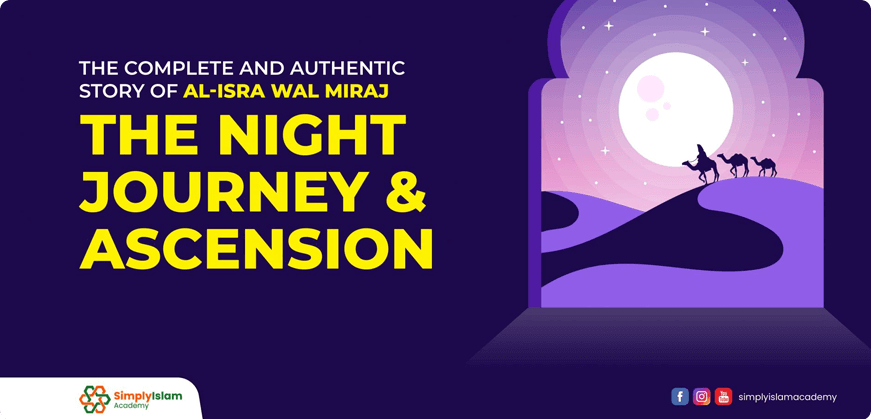
Jump To Section :
The definition of isra and miraj:.

Useful Links:
- Refund Policy
- Privacy Policy
Stay updated with our weekly newsletters!
Get free islamic reminders & be a better muslim.
Sign in/up with Google
Sign in/up with Facebook
Sign in/up with Linkedin
Sign in/up with Apple
Sign in/up with Twitter
This field, is required.
You have not accepted the "Terms & Conditions".

- Cro Magnon Man
1. The event referred to in this verse is known Miraj and Isra. According to authentic traditions, this took place a year before Hijrah. In the traditional and biographical literature, its details have been related by a large number (25) of the companions. Anas bin Malik, Malik bin Saasaah, Abuzar Ghifari, and Abu Hurairah (May Allah be pleased with them all) have related details of the event. Besides them, Umar, Ali, Abdullah bin Masud (Allah be pleased with them) have also related some parts of this event.
In this verse, the Quran mentions only a part of the Journey, i.e. from Masjid-i-Haram to the Temple at Jerusalem. The object of this journey as stated here was that Allah willed to show His servant some of His signs. The Quran does not give any details other than this but we find further details in the traditions, which are to this effect:
One night the Angel Jibril took Prophet (peace be upon him) on al-Buraq from Masjid-i-Haram to Masjid-i-Aqsa (the Temple). There the Prophet (peace be upon him) offered his prayers along with the other Prophets. Then he took him towards the higher spheres, where he met some of the great Prophets in different spheres. At last he reached the Highest Place in the Heavens, and was received in audience by Allah. It was there that, besides other important instructions, five daily Prayers were prescribed. Then he returned to the Temple and from there came back to Masjid-i-Haram. During this Journey, according to many traditions, Paradise and Hell were shown to him. We also learn from authentic traditions that on the following day when he mentioned this event, the disbelievers of Makkah scoffed at him, and some of the Muslims also were skeptical about this.
The above additional details based on the traditions cannot be said to be against the Quran, for these are additions to the details given in the Quran; therefore, the details related in the traditions cannot be rejected on the plea that they are against the Quran. Nevertheless, if one rejects any part of those details which are given in the traditions, one cannot be declared a renegade. On the other hand, if one rejects the details given in the Quran, one does become a renegade.
There are different versions of this journey. Some say that this happened in a dream, while others are of the opinion that the Prophet (peace be upon him) was fully awake and went on the journey with his own physical body. Some others say that it was merely a mystic vision which was shown to him. The opening words of this verse: “Glorified be He who took for a journey His servant” however, clearly show that it was a supernatural event which was brought about by the unlimited power of Allah. It is quite obvious that if the event had been merely a mystic vision, it would not have been introduced by the words which imply that the Being Who brought about this event is free from each and every kind of weakness and defect. Again the words “took His servant by night” also show that this was not a dream or a vision but a physical journey in which Allah arranged that the Prophet (peace be upon him) should make observation of His signs with his physical eyes. Therefore, one is bound to admit that this was not a mere spiritual experience but a physical journey and visual observation which Allah arranged for His Prophet (peace be upon him).
It is strange that some people are of the opinion that this extraordinary journey could not be possible, but now when man with his very limited power has been able to reach the moon, it is absurd to deny that Allah with His limitless power could enable His Messenger (peace be upon him) to make this journey in the extraordinary short time it took.
Above all, the question whether a thing is possible or not, can arise only in the case of human beings whose powers are after all limited, but such questions cannot be raised where the All-Powerful Allah is concerned. Only such a person who does not believe that Allah is able to do everything can raise objections against this wonderful journey about which Allah Himself says that He took His servant one night from Masjid-i-Haram to Masjid-i-Aqsa. Likewise all the objections raised against the various details which are given in the traditions are frivolous, except two, which are plausible:
First, if we accept these details, then we shall have to admit that Allah is confined to a certain place: otherwise there was no need that His servant should be taken for this purpose to a certain place. Secondly, according to traditions, the Prophet (peace be upon him) was enabled to observe Paradise and Hell where he saw some people suffering from torment. The objection is: why should some people be awarded punishments or rewards before the final judgment after Resurrection?
As regards to the first objection, it is true that Allah is Infinite by Himself, but in dealing with His creation, He employs those means which suit His creation not because of any limitation of His, but because of the limitations of His creation. For instance, when He speaks to any of His creature, He adopts the same limited mode of conversation as the addressee can understand, though He has limitless modes of speech. Likewise, when He desires to show some of the wonderful signs of His kingdom to a servant. He takes him to the place where the signs are to be shown. It is obvious that the servant cannot see at one and the same time the entire universe as Allah does, for Allah has no need to go to any place at all for this purpose but the servant has. The same applies to the appearance of the servant before the Creator. Though Allah is not confined to any locality, it is necessary for the servant to go to the place where His manifestations have been concentrated for his observation because it is not possible for the servant with his limited powers to go in His Presence in His Infinite capacity.
As regards to the second objection, it is based on the lack of understanding the thing: many of the signs which were shown to the Prophet (peace be upon him) were symbolic. For instance, a small hole from which a fat ox came out but could not go back into it, represented mischief personified. In the same way the adulterers were shown as if they had fresh meat before them but instead of that they were eating rotten flesh. Similarly punishments for evil deeds shown to him were only symbolic observations of the punishments in the Hereafter so that he might see in advance the things which would take place in the Hereafter.
In regard to the Miraj it should be kept in view that all the Prophets were enabled by Allah to see His signs in the heavens and the earth according to their ranks. And for this purpose all the material curtains were lifted so that they could see with their naked eyes the unseen realities, to which they were required to invite the people.
This was done so that the Prophets could say with full conviction what they had seen with their own eyes. For this experience would distinguish them from a philosopher who bases all his theories on guesswork and cannot say that he bears witness to what he claims. In contrast to philosophers, Prophets could say that they bore witness to the things which they presented because they had seen them with their own eyes.
"I really think this is one of the greatest causes one could support"
Mufti ismail m enk.
Articles > Isra and Miraj
Isra and Miraj
Table of Contents
Isra and Miraj, two significant events in Islamic history, hold profound importance in the hearts of Muslims worldwide. These events, as described in the Quran and authentic Hadith, recount the miraculous night journey and ascension of Prophet Muhammad (peace be upon him) to the heavens. The phrase “Isra and Miraj” refers to the Night Journey and Ascension, showcasing the unparalleled connection between the Prophet and Allah.
Isra – The Night Journey:
The journey began when the Angel Jibreel (Gabriel) brought the celestial steed Buraq to the Prophet Muhammad (PBUH) in Mecca. The Prophet mounted Buraq and, accompanied by Angel Jibreel, embarked on a celestial journey. The Quran describes this extraordinary event in Surah Al-Isra (17:1):
“Exalted is He who took His Servant by night from the Sacred Mosque to the farthest mosque, whose surroundings We have blessed, to show him of Our signs. Indeed, He is the Hearing, the Seeing.”
The “farthest mosque” is commonly interpreted as Al-Aqsa Mosque in Jerusalem, emphasizing the sanctity of the city in Islam.
Miraj – The Ascension:
Following the Night Journey, the Miraj refers to Prophet Muhammad’s ascension through the heavens. This aspect of the journey is highlighted in the Quran as follows:
“For he certainly saw of the greatest signs of his Lord. Have you considered Al-Lat and Al-Uzza? And Manat, the third – the other one? Is the male for you and for Him the female? That, then, is an unjust division.” Surah Al-Najm (53:13-18)
These verses underscore the Prophet’s witnessing of divine signs and reinforce the oneness of Allah.
Authentic Hadith on Isra and Miraj:
The Hadith literature provides further details about this miraculous journey. One such narration is found in Sahih al-Bukhari, where Prophet Muhammad (PBUH) recounts the events, describing the encounters with other prophets and the breathtaking sights in each heaven.
Hadith on the Night Journey:
Narrated by Ibn Abbas (may Allah be pleased with him), Prophet Muhammad (peace be upon him) said:”Then I was made to ascend to the lowest heaven, and asked for the gate to be opened, but it was asked, ‘Who is it?’ I said, ‘Muhammad.’ It was said, ‘Has he been called?’ I said, ‘Yes.’ When I reached the gate, it was said, ‘Who is it?’ I said, ‘Muhammad.’ It was said, ‘Has he been called?’ I said, ‘Yes.’ The gate was opened for me, and I saw Gabriel, who said, ‘This is your brother, Gabriel.'” Reference: Sahih al-Bukhari, Book 54, Hadith 429
Hadith on the Ascension:
Narrated by Anas bin Malik (may Allah be pleased with him), Prophet Muhammad (peace be upon him) said:”Then the group of prophets came and I saw Moses, Jesus, and Abraham, and I was told about the other prophets between them and me. Then I was raised up to the second heaven, and Gabriel asked for the gate to be opened, but it was asked, ‘Who is it?’ Gabriel answered, ‘Gabriel.’ It was asked, ‘Who is accompanying you?’ Gabriel replied, ‘Muhammad.’ It was said, ‘Has he been called?’ Gabriel said, ‘Yes.’ When we reached over the second heaven, I saw Yahya (John) and Isa (Jesus) who were cousins. Gabriel said, ‘These are John and Jesus, so greet them.’ I greeted them and they returned the greeting saying, ‘Welcome, O Pious Brother and Pious Prophet!'” Reference: Sahih al-Bukhari, Book 54, Hadith 429
Conclusion:
Isra and Miraj stand as a testament to the Prophet Muhammad’s unique and honorable position in Islam. The events symbolize the Prophet’s closeness to Allah and serve as a source of inspiration and reflection for Muslims worldwide. The Night Journey and Ascension reinforce the importance of faith, prayer, and submission to the divine will, offering believers a spiritual journey that transcends the earthly realm.
Related Audio Episodes on Isra and Miraj
- Ahsan Hanif – Al Isra Wal Miraj
- Abdul Nasir Jangda – Seerah 143 – The Journey Of Al-Isra And Al-Miraj
- Kamal El-Mekki – Seerah Isra And Miraj
- Muhammad West – A Journey through the Heavens and Beyond
- Yasir Qadhi – A Meeting With The Divine To Establish The Prayer
- Riad Ouarzazi – Tafseer Bites 2022 – An Ayah that would change your life Annahl, Israa, Kahf
- Nouman Ali Khan – Money Matters – Surah al-Israa
- Musleh Khan – Read it, It’s your book
- Aarij Anwer – A Juz A Day – 15th Juz
- Sajid Ahmed Umar – Moments with the Qur’an #13
Quranic Reflection No. 473. Āyat 41:30 – Steadfastness on the Journey to Allah
إِنَّ الَّذِينَ قَالُوا رَبُّنَا اللَّهُ ثُمَّ اسْتَقَامُوا تَتَنَزَّلُ عَلَيْهِمُ الْمَلَائِكَةُ أَلَّا تَخَافُوا وَلَا تَحْزَنُوا وَأَبْشِرُوا بِالْجَنَّةِ الَّتِي كُنْتُمْ تُوعَدُونَ Innaladhīna qālū rabbunal-lāhu thummas-taqāmū tatanazzalu ‘alayhimul-malā’ikatu allā takhāfū walā tahzanū wa-abshirū bil-jannatil-latī kuntum tū‘adūn Indeed, those who say, ‘Our Lord is Allah!’ and then remain steadfast, the angels descend upon them, [saying,] ‘Do not fear, nor be grieved! Receive the good news of the paradise, which you have been promised. (Sūrat Fussilat, No 41, Āyat 30)
Steadfastness is one of the highly coveted virtues in Islam. To have faith in the path is not enough. Nor is it enough to just start the trek. The real challenge is to go the entire way and reach the destination. That is the true test. Obstacles and disappointments along the path sometimes lead to an evaporation of enthusiasm. For some it can mean losing the will to continue. It is no wonder that steadfastness or ‘istiqāmah’ is the litmus test of the believer. How strong is the commitment to the path?
The above verse talks about the reverence of the angels for those who are steadfast. These people have the two necessary qualities all throughout their life: faith and good deeds. Tafsīr-e Namūneh says this verse encapsulates all that is beautiful about a believer – turning to the Lord with deep faith that colors all of life and brings forth determination to be firm on the path. Tafsīr Majma‘ al-Bayān quotes from the Prophet sallal-lāhu ‘alayhi wa-ālihi wasallam about this verse: People say it but then most of them disbelieve. So, whoever says it until he dies, he is the one who is steadfast . Amirul Mu’minin Imam Ali ‘alayhis salām says: Action! action! Then look at the end; the end and remain steadfast; steadfast. ( Nahjul Balāgha , Sermon 176)
The command to be steadfast was given to the Prophet in Sūrat al-Shūrā: Be steadfast, just as you have been commanded (Q 42:15). In Sūrat Hūd he was also told: So be steadfast, just as you have been commanded—you and whoever has turned to Allah with you (Q 11:112). Both these verses talk about the importance of being steadfast, but the Prophet said about the latter: Sūrat Hūd has aged me , referring to this verse. Scholars say he did not mention about Sūrat al-Shūrā, because here the command applied to him alone while in Sūrat Hūd the command applied to those who were with him also. That was heavy for him. He knew that his Ummah would find it difficult to be steadfast on the right path.
When we think of what we have been able to achieve in the month of Ramadan in terms of spirituality and closeness to Allah subhānahu wata‘ālā there is a feeling of happiness and gratitude to Allah for the chance. By the Grace of God, we have, during this month, embarked on a path towards Allah (swt). After the month, the challenge is to remain steadfast on it. How are we going to continue practices that we performed in the holy month, but which will now need some extra determination and perseverance to continue? How steadfast are we going to be? Imam Zaynul ‘Ābidīn (a) prays for that after he asks Allah for the tawfīq to practise noble habits in the month of Ramadan. he says: O Allah, make us like this in the other months and days as long as You give us life, and place us among Your righteous servants, those who shall inherit paradise, therein dwelling forever (Q 23:11) (Du‘ā 44, Sahīfa Sajjādiyya )
We need to identify practices that should continue in our lives after the holy month is over. These could include saying the daily prayers on time, reciting and pondering over the Quran, setting time aside for quiet and reflective worship, and reaching out to others. The month of Ramadan was a training ground for the habits that were formed. After the month is the time to put them into real practice. Let this verse remind you of the need to be steadfast after the holy month.
Sources : Shaykh Tabarsī, Tafsīr Majma‘ al-Bayān ; Āyatullāh Nāsir Makārim Shirāzī (Ed.), Tafsīr-e Namūneh ; http://www.imam-khomeini.ir/ fa/c78_85904/
Make Learning
A lifestyle.
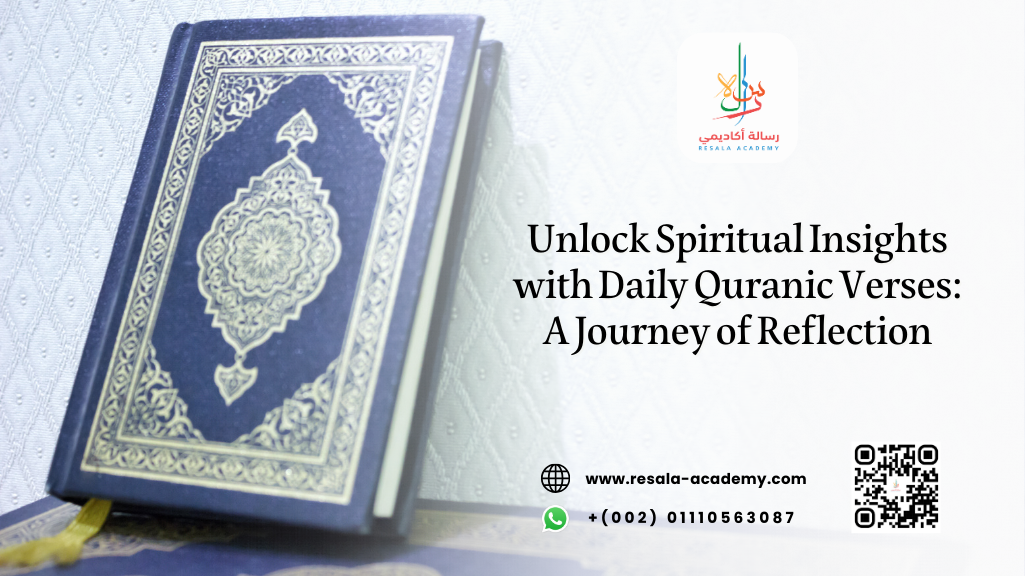
Unlock Spiritual Insights with Daily Quranic Verses: A Journey of Reflection
In a world filled with constant noise and distractions, finding moments of peace and spiritual connection can be challenging. However, incorporating daily Quranic verses into your routine can offer a powerful opportunity for self-reflection, personal growth, and a deeper understanding of Islam.
The Quran is not just a religious text; it is also seen as the direct word of Allah (God) revealed to Prophet Muhammad (peace be upon him). Each verse holds profound wisdom and guidance that transcends time and speaks to the core values of humanity. By engaging with these verses daily, we open ourselves up to unique insights that have the potential to transform our lives.
In this blog post, we will explore the benefits of embracing daily Quranic verses in our lives. We will delve into how understanding their context and interpretation can enhance our understanding. Additionally, we will provide practical tips for reflection and implementation in our daily routines. Join us on this journey as we unlock spiritual insights through the power of Quranic teachings!

The benefits of incorporating daily Quranic verses into your routine
The benefits of incorporating daily Quranic verses into your routine are numerous and profound. Here are some key advantages:
1. Spiritual Nourishment: Daily engagement with the Quranic verses provides nourishment for our souls, helping us to strengthen our connection with Allah and deepen our faith.
2. Inner Peace and Tranquility: Reading the Quran regularly brings a sense of calmness and tranquility to our hearts, especially during challenging times. It serves as a source of solace, guidance, and comfort.
3. Increased Knowledge and Understanding: Regular exposure to the Quran expands our knowledge about Islam’s principles, teachings, history, and values. This enables us to have a deeper understanding of our religion.
4. Moral Guidance: The Quran offers timeless moral guidance that helps shape our character and guides us in making ethical decisions in all aspects of life.
5. Personal Growth: Engaging with the Quranic verses encourages self-reflection, leading to personal growth on both an intellectual and spiritual level.
6. Strengthened Connection with Arabic Language: Incorporating daily readings from the original Arabic text fosters a better understanding of the language in which it was revealed.
7. Protection from Negative Influences: The words of the Quran act as a shield against negative influences by providing clarity on what is right or wrong according to Islamic teachings.
8. Purification & Forgiveness: By reciting daily verses from the Holy book we can purify ourselves spiritually thus seeking forgiveness for past sins augmenting inner peace
By integrating these powerful verses into your everyday routine, you open yourself up to immense blessings while nurturing your relationship with Allah (SWT). So why not embark on this transformative journey today?
Understanding the context and interpretation of Quranic verses
Understanding the context and interpretation of Quranic verses is crucial for gaining a deeper understanding of the message conveyed in these sacred texts. The Quran , as a comprehensive guide to life, covers various topics such as theology, morality, guidance on personal conduct, and social issues. Each verse has its historical background and significance that needs to be considered while interpreting its meaning.
To understand the context of Quranic verses, it is essential to study the circumstances under which they were revealed. This involves examining events from Prophet Muhammad’s (peace be upon him) life and understanding the challenges faced by early Muslims. By doing so, we can gain insights into why certain verses were revealed and their intended purpose.
Interpreting Quranic verses requires knowledge of Arabic grammar and linguistics since nuances in language can significantly impact meaning. Additionally, scholars rely on Tafsir literature – commentaries that provide explanations and interpretations based on scholarly research – to further comprehend the depth of each verse.
It’s important to approach interpretation with humility and seek guidance from knowledgeable individuals who have studied Islamic sciences extensively. Islam encourages critical thinking but also emphasizes respecting established scholarship when it comes to understanding complex religious texts like the Quran.
By delving into contextual analysis and thorough interpretation methods, we can uncover layers of wisdom contained within each verse of the Quran. This process enables us to apply these teachings effectively in our lives while avoiding misinterpretations or misconceptions about Islam’s core principles.
Remember that exploring different perspectives enhances our appreciation for divine revelation while promoting tolerance among diverse interpretations within reasonable bounds set by Islamic scholarship
Tips for reflection and implementation of Quranic teachings in daily life
Tips for Reflection and Implementation of Quranic Teachings in Daily Life
1. Create a Sacred Space: Designate a quiet corner or room in your home where you can sit, reflect, and engage with the Quran. Make it a comfortable space that inspires tranquility and focus.
2. Set Aside Time: Dedicate a specific time each day to read and contemplate Quranic verses. Whether it’s early morning, during lunch break, or before bedtime, consistency is key to developing a meaningful connection with the teachings of the Quran.
3. Start Small: Begin by selecting just one verse or passage that resonates with you each day. Focus on understanding its meaning and implications for your life. As you progress, gradually increase the number of verses you reflect upon.
4. Seek Understanding: Use reliable translations and tafsir (interpretation) resources to gain clarity on the meanings of Quranic verses. Explore different interpretations from reputable scholars to develop a comprehensive understanding.
5. Reflect Introspectively: Contemplate how the message conveyed in each verse relates to your own experiences and challenges in daily life. Consider how you can apply these teachings practically to improve yourself as an individual and enhance your relationships with others.
6. Journaling: Keep a journal dedicated to recording insights gained through reflecting on Quranic verses. Write down personal reflections, lessons learned, goals inspired by these teachings, or any other thoughts that arise during this process.
7. Implementation Through Action: Apply what you learn from the Quran into action steps within your daily routine; embodying compassion towards others, seeking forgiveness when mistakes are made, or striving for self-improvement based on Islamic principles.
By incorporating these tips into our lives, we can unlock spiritual insights from daily Qur’anic verses which will nourish our souls and guide us towards leading more purposeful lives aligned with Allah’s commandments.
Exploring different themes and lessons from selected Quranic verses
Exploring different themes and lessons from selected Quranic verses can be a fascinating journey of self-discovery and spiritual growth. The Quran, the holy book of Islam, contains timeless wisdom and guidance for all aspects of life. By delving into its verses, we can gain profound insights that resonate with our daily experiences.
One theme that often emerges from the Quran is the importance of faith and trust in God. Verses such as “Indeed, Allah is with those who fear Him and those who are doers of good” (Quran 16:128) remind us to have an unwavering belief in God’s presence and seek righteousness in our actions.
Another recurring theme is the concept of patience during challenging times. The verse “And We will surely test you with something of fear and hunger… but give good tidings to the patient” (Quran 2:155) encourages us to remain steadfast in our faith when faced with adversity.
Love and compassion towards others are also emphasized throughout the Quran. Verses like “And speak to people kindly” (Quran 2:83) inspire us to treat everyone with respect, kindness, and empathy.
The Quran also addresses topics related to justice, forgiveness, gratitude, humility, and perseverance – just to name a few! Each verse offers valuable insights that we can reflect upon and apply in our daily lives.
By exploring these various themes within the selected Quranic verses regularly, we deepen our understanding not only of ourselves but also of how we should navigate through life’s challenges. It allows us to internalize these teachings so that they become an integral part of how we think and act. Through reflection on these verses’ meanings relevantly applied today; they guide us towards becoming better individuals spiritually connected with God.
Incorporating this practice may involve setting aside dedicated time each day or week for reading specific verses or focusing on particular thematic chapters within the Quran. Additionally finding scholarly resources and guidance from scholars or Quranic teachers can further aid in understanding the context and depth of these verses. Exploring different themes and lessons from selected Quranic verses can also be a group activity, fostering meaningful discussions and deeper connections with fellow individuals on a spiritual level. It allows for exchanging diverse perspectives and insights, enhancing our understanding of the Quran’s teachings.
Ultimately, exploring various themes and lessons from selected Quranic verses is a continuous process that helps us connect with the divine message of the Quran and apply its timeless wisdom to our daily lives. It is a journey toward self-discovery, growth, and a closer relationship with Allah.
Resources for further reading and guidance on understanding the Quran
1. Tafseer Books: Tafseer is the interpretation of the Quranic verses, providing deeper insights into their meanings and contexts. There are numerous renowned tafseer books available in various languages, such as “Tafsir Ibn Kathir” and “Maariful Quran,” which offer detailed explanations.
2. Mobile Apps: In today’s digital age, mobile apps have made learning more accessible than ever before. Apps like Quran Majeed (with translations), Muslim Pro (includes prayer times), and iQuran provide comprehensive features to aid in understanding the text.
3. Local Scholars/Imams: Engaging with scholars or imams at local mosques is an excellent way to seek guidance on interpreting specific verses or understanding complex concepts within the Quran.
4. Study Circles/Groups: Joining study circles or groups focused on exploring the teachings of the Quran allows for collective learning and discussion with fellow Muslims who share a similar interest in deepening their understanding.
Remember that these resources should be used as tools to support your journey of reflection on daily Quranic verses rather than replacing personal contemplation and seeking Allah’s guidance through prayer.
Resala Academy Offers Complete Quran Courses
Resala Academy is an esteemed institution that offers comprehensive Quran courses to individuals seeking to deepen their understanding and connection with the Holy Quran. With a team of qualified scholars and teachers, Resala Academy provides a platform for students to engage in meaningful learning experiences.
At Resala Academy, you can choose from a variety of courses tailored to your specific needs and goals. Whether you are a beginner looking to learn how to read the Quran or an advanced student interested in studying tafsir (interpretation) and memorization, there is a course for everyone.
The academy focuses on providing quality education by employing experienced instructors who guide students through every step of their journey. They emphasize not only memorizing but also understanding the meaning behind each verse, allowing students to truly appreciate the depth and wisdom of the Quranic teachings.
In addition to traditional classroom settings, Resala Academy also offers online courses, making them accessible to individuals around the world. This flexibility allows students to study at their own pace without compromising on the quality of education they receive.
By enrolling in these complete Quran courses offered by Resala Academy, you will have access to valuable resources such as textbooks, audio recordings, and supplementary materials that support your learning process. The academy’s commitment goes beyond teaching – they aim to empower individuals with knowledge that they can apply in their daily lives.
Whether you are seeking spiritual growth or simply want to enhance your understanding of Islam’s holy text, Resala Academy provides an excellent opportunity for self-improvement through its comprehensive Quran courses. Enroll today and embark on a transformative journey towards unlocking spiritual insights through daily engagement with the verses of the Holy Quran.
1. What are the benefits of incorporating daily Quranic verses into our routine?
– Daily recitation and reflection on Quranic verses can bring a sense of peace, guidance, and spiritual growth. – It helps in deepening our understanding of Islam and strengthening our connection with Allah. – The practice promotes self-reflection, mindfulness, and personal development.
2. How can we understand the context and interpretation of Quranic verses?
– Study Tafsir (interpretation) books written by scholars to gain insights into the meanings behind specific verses. – Learn Arabic to better comprehend the original text or utilize reliable translations for accurate understanding.
3. Any tips for reflecting on and implementing Quranic teachings in daily life?
– Set aside dedicated time each day to read and reflect upon selected verses. – Keep a journal to jot down thoughts, reflections, and practical applications of these teachings.
4. What themes can we explore through daily Quranic verses?
– Patience: Reflect on stories like Prophet Ayub’s resilience during trials (Surah Al-Anbiya 21:83). – Gratitude: Contemplate how Surah Al-Rahman reminds us of Allah’s bountiful blessings (55:13).
5. Where can I find resources for further reading and guidance on understanding the Quran?
– Websites like Islamic Online University offer free courses in various aspects of studying the Qur’an – Seek knowledge from reputable scholars via lectures or online platforms
6. Is there any institution that offers complete Quran courses?
Resala Academy is an excellent resource offering comprehensive online courses covering Tajweed, Tafsir, and memorization techniques.
Incorporating daily Quranic verses into your routine is a powerful way to unlock spiritual insights and embark on a journey of reflection. By understanding the context and interpretation of these verses, you can gain valuable lessons that can be implemented in your daily life. Whether you are seeking guidance, solace, or inspiration, the Quran offers wisdom for all aspects of life.
By reflecting on and applying Quranic teachings in our lives, we can strive towards becoming better individuals and strengthening our connection with Allah. The themes and lessons found within the Quran are vast and diverse, catering to every aspect of human existence. From stories of prophets to moral values to guidance on relationships and society, there is something for everyone.
To further deepen your understanding of the Quran, there are numerous resources available that provide guidance on interpretation and offer insights into specific verses or themes. Tafseer books written by Islamic scholars serve as comprehensive guides to help navigate through the depths of this divine scripture.
If you’re looking for structured learning opportunities to study the Quran comprehensively, Resala Academy offers complete courses that cover Tajweed (proper recitation), Tafseer (interpretation), memorization techniques (Hifz), Arabic language skills (for non-native speakers), as well as other related subjects. Their experienced instructors ensure an enriching learning experience tailored to individual needs.
Unlocking spiritual insights with daily Quranic verses requires dedication and consistent effort. Make it a habit by setting aside time each day for reflection upon these sacred words. Allow yourself to truly absorb their meanings and let them guide your actions throughout the day.
Remember, incorporating daily Quranic verses into your routine not only enhances your spirituality but also provides practical guidelines for leading a fulfilling life based on Islamic principles. Let this journey be one filled with personal growth, enlightenment, and inner peace, and ultimately bring you closer to Allah’s love.
Start today! Open your heart and mind to the profound wisdom contained within the Quran, and embark on a transformative journey that will have
Related Posts
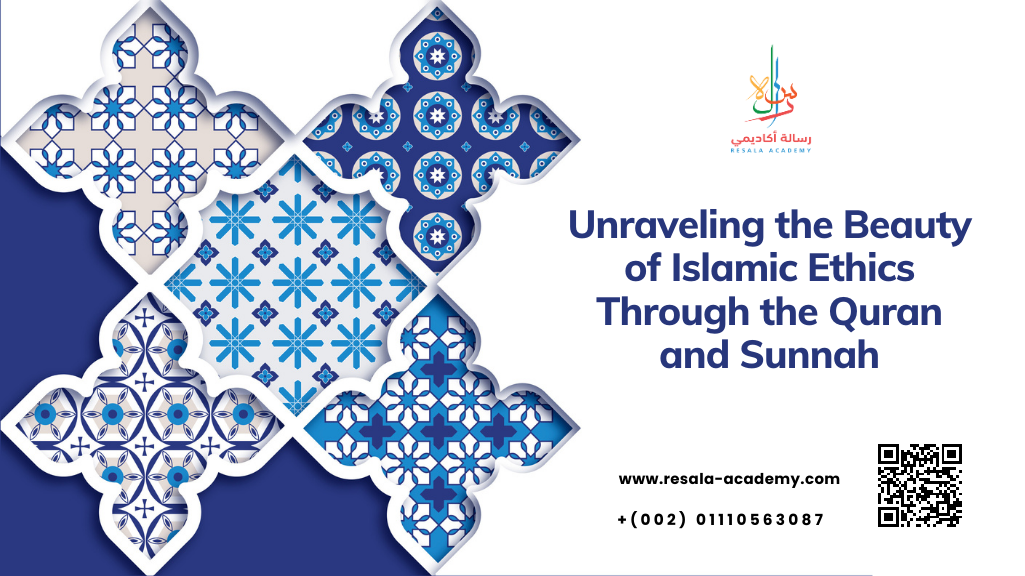
Unraveling the Beauty of Islamic Ethics Through the Quran and Sunnah
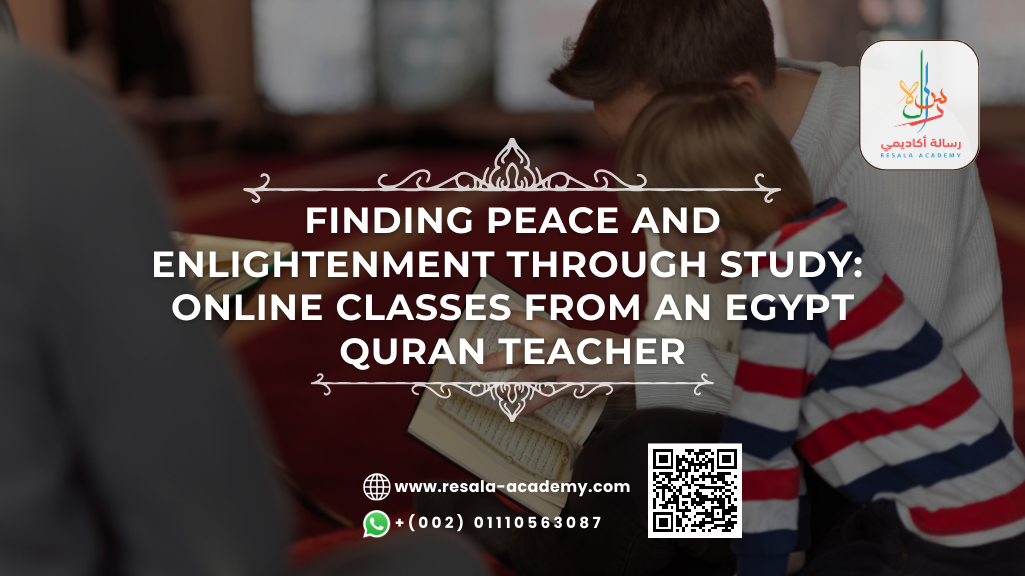
Discovering Peace and Enlightenment through Study 101: Online Classes with an Egypt Quran Teacher
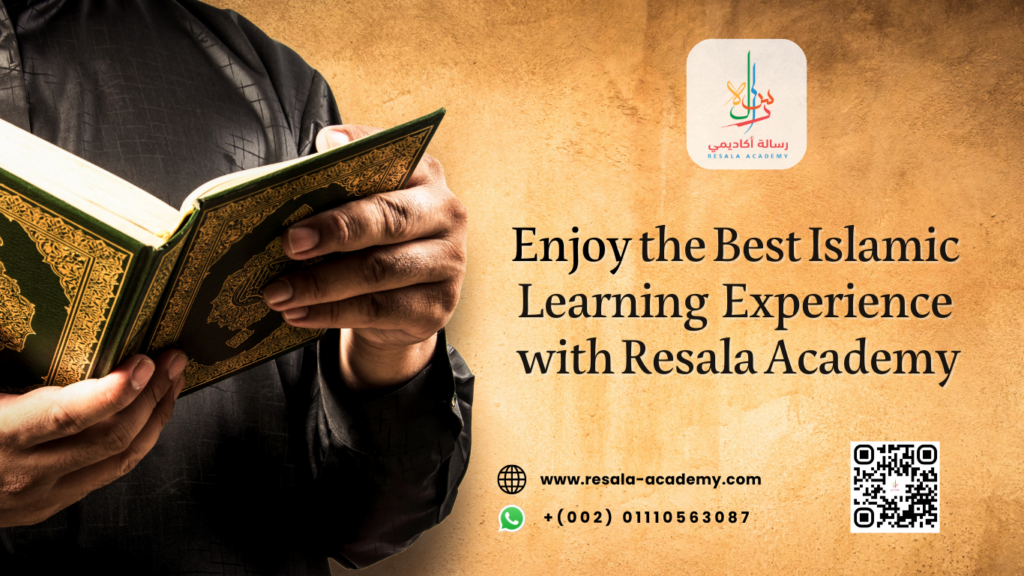
Enjoy the Best Islamic Learning Experience with Resala Academy

Top online resources for learning the Holy Quran
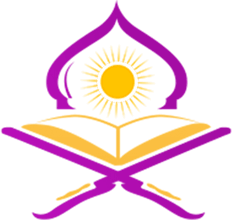
Reflecting on Quran Verses about Learning and Education
- February 10, 2024
- Bayan Al Quran
Quran Verses about Learning: The Quran emphasizes the significance of seeking knowledge and understanding through various verses. Surah Al-Iqra (Surah Al-Alaq) emphasizes reading and learning, with the pen symbolizing knowledge (Surah Al-Iqra: 1-5). Surah Al-Zumar distinguishes between those with knowledge and those without, urging believers to become people of understanding (Surah Al-Zumar: 9). Surah Al-Baqarah highlights wisdom from Allah, reserved for those who truly understand the Quran (Surah Al-Baqarah: 269). Surah A-lNisa encourages faith in the Book and previous scriptures (Surah A-lNisa: 136).
Surah Al-Ankabut encourages anchoring to knowledge, with believers urged to engage with the Quran for divine mercy (Surah Al-Ankabut: 49; 204). Surah Al-Mujadila warns against concealing Quranic teachings and emphasizes living by its guidance (Surah Al-Mujadila: 11; 19; 159). Surah Al-Baqarah imparts wisdom through parables, stressing understanding, application, and seeking forgiveness (Surah Al-Baqarah: 121; 269; 282; 286). Lastly, Surah Al-A’raf guides believers to actively listen to the Quran for mercy and emphasizes conveying knowledge despite rejection (Surah Al-A’raf: 43; 169; 176; 204).
In the realm of Quran Verses talks about the Islamic teachings, the Quran stands as a timeless source of guidance and wisdom. Its verses illuminate various aspects of life, spirituality, and human conduct. Among its profound teachings, a recurrent theme resonates—the paramount importance of learning.
The Quran extols the virtue of seeking knowledge, understanding its revelations, and applying its insights to lead a purposeful and enlightened life. As we embark on this journey to explore the ayat (verses) about learning the Quran, we delve into the heart of Islam’s exhortation to acquire knowledge as a means of drawing closer to the Divine and enriching our existence.
Table of Contents
Unveiling the Quranic Emphasis on Knowledge
The Quran, revered by millions across the globe, is not merely a compilation of words but a comprehensive guide to righteous living. It beckons individuals to reflect, ponder, and delve into its verses to extract the profound meanings they hold. Central to this endeavor is the act of learning—the conscious engagement with the Quranic teachings.
The Quran, in its eloquent language, emphasizes that knowledge is a pathway to a deeper connection with Allah, an instrument to lead humanity toward a life imbued with wisdom, compassion, and purpose.
In this exploration of “Ayat about Learning the Quran,” we shall embark on an illuminating journey through select verses that underscore the significance of seeking knowledge and understanding the Quran.
We shall navigate through verses that celebrate the acquisition of wisdom, illuminate the role of those who impart knowledge, and elucidate the transformative power of comprehending and living by the Quran’s teachings .
Quran Verses that Illuminate the Path of Learning
As we navigate through these verses, we shall unravel the Quranic narrative that urges believers to rise above ignorance, embrace enlightenment, and become stewards of knowledge.
1- Surah Al-Iqra (Surah Al-Alaq), Verse 1-5:
“Read in the name of your Lord who created. Created man from a clinging substance. Read, and your Lord is the most Generous—Who taught by the pen—Taught man that which he knew not.” Verse 1-5
These opening verses of Surah Al-Iqra emphasize the act of reading and learning through the command of Allah. The pen, representing knowledge and learning, is highlighted as a means through which human beings are taught what they did not know.
2- Surah Al-Zumar, Verse 9:
“Are those who know equal to those who do not know? Only they will remember [who are] people of understanding.” Verse 9
This verse emphasizes the distinction between those who possess knowledge and those who do not. It encourages believers to become people of understanding and to recognize the elevated status of those who seek knowledge.
3- Surah Al-Baqarah, Verse 269:
“He grants wisdom to whom He pleases; and he to whom wisdom is granted indeed receives a benefit overflowing; but none will grasp the Message but people of understanding.” Surah Al-Baqarah
This verse highlights that wisdom and understanding come from Allah, and those who receive it are recipients of a great benefit. It reinforces the idea that true understanding of the Quran comes to those who actively seek it.
4- Surah A-lNisa, Verse 136:
“O you who have believed, believe in Allah and His Messenger and the Book that He sent down upon His Messenger and the Scripture which He sent down before. And whoever disbelieves in Allah, His angels, His books, His messengers, and the Last Day has certainly gone far astray.” Surah A-lNisa
This verse encourages believers to have faith in the Book sent down by Allah and His messengers. It underscores the importance of believing in and learning from the scriptures revealed before the Quran as well.

Seeking Guidance from the Informed: The Wisdom of Surah Al-Ankabut
Surah Al-Ankabut, also known as “The Spider,” is a chapter in the Quran that carries profound insights about faith, perseverance, and seeking guidance. Titled after the spider’s intricate web that can be fragile yet tenacious, this chapter weaves a narrative that encourages believers to anchor themselves to knowledge and understanding.
Within its verses lies a timeless lesson on the importance of learning from those who possess insight, and the role that knowledge plays in fortifying our spiritual journey. Let us unravel the wisdom embedded in Surah Al-Ankabut, as it illuminates the significance of seeking guidance from the informed.
Surah Al-Ankabut, Verse 49:
“But nay, this is a Glorious Quran, (Inscribed) in a Tablet Preserved!” Verse 49
While this verse doesn’t explicitly mention learning, it highlights the sacred and preserved nature of the Quran . This emphasizes the importance of studying and understanding the Quran’s teachings.
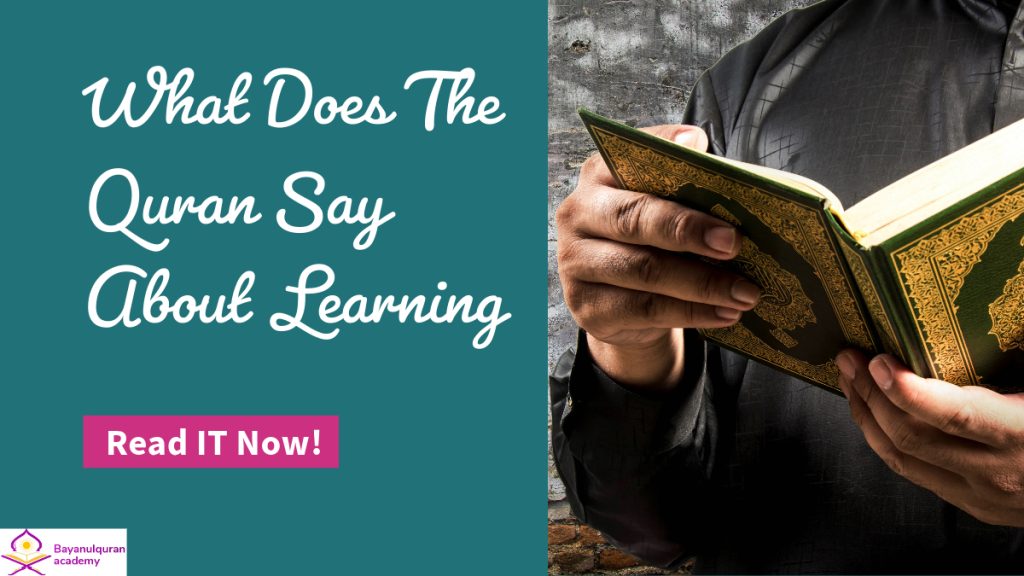
Unveiling Profound Meanings: Decoding the Symbolism of Surah Al-Mujadila
Surah Al-Mujadila holds within its verses a tapestry of symbolism that enriches our understanding of faith and interpersonal dynamics. Like a hidden gem, this chapter of the Quran presents layers of meanings that invite contemplation and exploration.
Through its stories and metaphors, Surah Al-Mujadila imparts timeless wisdom, offering us a unique perspective on resolving disputes, nurturing relationships, and embracing the principles of justice. Join us as we delve into the symbolism of this chapter, uncovering the transformative insights it carries and the guidance it provides for our lives.
1- Surah Al-Mujadila, Verse 11:
“O you who have believed, when you are told, ‘Make space in assemblies,’ then make space; Allah will make space for you. And when you are told, ‘Arise,’ then arise; Allah will raise those who have believed among you and those who were given knowledge, by degrees. And Allah is Acquainted with what you do.” Verse 11
This verse highlights the honor and elevation that comes with knowledge. Those who are given knowledge are raised in ranks by Allah, underscoring the significance of both knowledge and obedience.
2- Surah Al-Mujadila, Verse 19:
“The example of those who were entrusted with the Torah and then did not take it on is like that of a donkey who carries volumes [of books]. Wretched is the example of the people who deny the signs of Allah. And Allah does not guide the wrongdoing people.” Verse 19
This verse illustrates the importance of not just possessing knowledge but also acting upon it. Those who were entrusted with knowledge but did not follow it are likened to a donkey carrying books, emphasizing the importance of living by the teachings of the Quran.
Delving Deeper: Interpreting the Quranic Parable in Surah Al-Baqarah
Within the verses of the Quran lies a wealth of wisdom conveyed through parables, inviting us to ponder their meanings and extract valuable life lessons. Among these parables, Surah Al-Baqarah presents a thought-provoking narrative that resonates with profound insights.
This chapter holds a mirror to human nature, guiding us to introspect and make choices that align with our spiritual journey. Join us as we embark on a journey of interpretation, peeling back the layers of this Quranic parable in Surah Al-Baqarah to reveal the timeless wisdom it imparts.
1- Surah Al-Baqarah, Verse 121:
“Those to whom We have given the Book recite it with its true recital. They [are the ones who] believe in it. And whoever disbelieves in it – it is they who are the losers.” Verse 121
This verse underscores the significance of reciting the Quran with proper understanding and reflection. It praises those who recite the Book as it should be recited, with true comprehension, belief, and faith. It contrasts this with the consequences of disbelief or neglecting the Quran’s teachings.
2- Surah Al-Baqarah, Verse 269:
“He grants wisdom to whom He pleases; and he to whom wisdom is granted indeed receives a benefit overflowing; but none will grasp the Message but people of understanding.” Verse 269
This verse speaks of the wisdom granted by Allah to those He chooses. It highlights the immense benefit of receiving wisdom and understanding, emphasizing that only those with insight and comprehension will truly grasp the message of the Quran.
3- Surah Al-Baqarah, Verse 285:
“The Messenger has believed in what was revealed to him from his Lord, and [so have] the believers. All of them have believed in Allah and His angels and His books and His messengers, [saying], ‘We make no distinction between any of His messengers.’ And they say, ‘We hear and we obey. [We seek] Your forgiveness, our Lord, and to You is the [final] destination.'” Verse 285
While this verse encompasses a broader theme of belief, it emphasizes the faith of the believers in the revelations from Allah, including His books (which includes the Quran). The verse portrays a unified belief in all the messengers and their messages, highlighting the importance of acknowledging and learning from these divine sources.
4- Surah Al-Baqarah, Verse 282:
“O you who have believed, when you contract a debt for a specified term, write it down. And let a scribe write [it] between you in justice. Let no scribe refuse to write as Allah has taught him. So let him write and let the one who has the obligation dictate. And let him fear Allah, his Lord, and not leave anything out of it. But if the one who has the obligation is of limited understanding or weak or unable to dictate himself, then let his guardian dictate in justice. And bring to witness two witnesses from among your men. And if there are not two men [available], then a man and two women from those whom you accept as witnesses – so that if one of the women errs, then the other can remind her.” Verse 282
This comprehensive verse emphasizes justice, honesty, and proper documentation, and although it covers financial transactions, it underscores the importance of meticulousness and clarity in communication. This principle of being careful and detailed in recording agreements can be extrapolated to the practice of learning and understanding the Quran as well.
5- Surah Al-Baqarah, Verse 44:
“Do you order righteousness of the people and forget yourselves while you recite the Scripture? Then will you not reason?” Verse 44
This verse admonishes those who advocate for righteousness but fail to apply it in their own lives. It prompts self-reflection and encourages individuals to ponder their own actions while engaging with the Quranic teachings.
6- Surah Al-Baqarah, Verse 151:
“Just as We have sent among you a messenger from yourselves reciting to you Our verses and purifying you and teaching you the Book and wisdom and teaching you that which you did not know.” Verse 151
In this verse, Allah highlights the multifaceted role of the Prophet Muhammad (peace be upon him) in conveying the Quranic message. It emphasizes the teaching of both the Book and wisdom, indicating the holistic nature of learning in Islam.
7- Surah Al-Baqarah, Verse 159:
“Indeed, those who conceal what We sent down of clear proofs and guidance after We made it clear for the people in the Scripture – those are cursed by Allah and cursed by those who curse.” Verse 159
This verse warns against concealing or distorting the clear guidance revealed in the Quran. It emphasizes the importance of accurately conveying and understanding the teachings to avoid falling into misguidance.
8- Surah Al-Baqarah, Verse 197:
“Hajj is [during] well-known months, so whoever has made Hajj obligatory upon himself therein [by entering the state of ihram], there is [to be for him] no sexual relations and no disobedience and no disputing during Hajj. And whatever good you do – Allah knows it. And take provisions, but indeed, the best provision is fear of Allah. And fear Me, O you of understanding.” Verse 197
This verse relates to the regulations of Hajj pilgrimage, but it also imparts the importance of understanding the rules and guidelines related to religious practices. It emphasizes that true understanding and fear of Allah are integral components of faith.
9- Surah Al-Baqarah, Verse 286:
“Allah does not burden a soul beyond that it can bear. It will have [the consequence of] what [good] it has gained, and it will bear [the consequence of] what [evil] it has earned. Our Lord, do not impose blame upon us if we forget or make a mistake. Our Lord, and lay not upon us a burden like that which You laid upon those before us. Our Lord, and burden us not with that which we have no ability to bear. And pardon us; and forgive us; and have mercy upon us. You are our protector, so give us victory over the disbelieving people.” Verse 286
This concluding verse of Surah Al-Baqarah is a supplication that acknowledges human limitations and seeks Allah’s forgiveness for mistakes and forgetfulness. It underscores the need for understanding and reflects the humble disposition of believers towards their Creator.
How Surah Al-A’raf Guides Us to Apply Knowledge?
The Quran serves as a timeless source of guidance, illuminating every facet of human existence. Among its chapters, Surah Al-A’raf stands as a beacon, offering profound insights into the application of knowledge in our lives. Through narratives and reflections, this chapter speaks to the intricate relationship between learning and action.
As we explore the verses of Surah Al-A’raf, we unveil a roadmap that leads us beyond the acquisition of knowledge, guiding us towards its practical embodiment. Join us on a journey through this chapter’s verses, as we discover how it enlightens the path of utilizing knowledge to elevate our faith and navigate the complexities of the world.
1- Surah Al-A’raf, Verse 43:
“And We shall remove from their hearts any lurking sense of injury; beneath them will be rivers flowing; and they shall say: ‘Praise be to Allah, who hath guided us to this (felicity): never could we have found guidance, had it not been for the guidance of Allah: indeed it was the truth, that the messengers of our Lord brought unto us.’ And they shall hear the cry: ‘Behold! the garden before you! Ye have been made its inheritors, for your deeds (of righteousness).'” verse 43
This verse illustrates the gratitude of those who are guided by Allah’s message. It emphasizes that the guidance brought by the messengers is the ultimate source of true enlightenment and understanding. It underscores that without divine guidance, true knowledge cannot be attained.
2- Surah Al-A’raf, Verse 169:
“And a company of them said: ‘Why preach ye to a people whom Allah will destroy or visit with a terrible punishment?’ Said the preachers: ‘To discharge our duty to your Lord, and perchance they may fear Him.'” Verse 169
This verse highlights the duty of the messengers to convey the message of Allah regardless of the circumstances. It underscores the importance of teaching and spreading knowledge, even if some might reject it. The emphasis is on fulfilling one’s responsibility to impart knowledge.
3- Surah Al-A’raf, Verse 176:
“And had We willed, We could have elevated him thereby, but he adhered [instead] to the earth and followed his own desire. So his example is like that of the dog: if you chase him, he pants, or if you leave him, he [still] pants. That is the example of the people who denied Our signs. So relate the stories that perhaps they will give thought.” Verse 176
This verse uses a metaphor to illustrate the behavior of those who ignore divine guidance and follow their desires. The analogy of a dog symbolizes heedlessness. The verse encourages the telling of stories (lessons) to prompt reflection and learning from the past.
4- Surah Al-A’raf, Verse 204:
“And when the Quran is recited, then listen to it and pay attention that you may receive mercy.” Verse 204
This straightforward verse directs believers to actively listen and pay attention when the Quran is being recited. It emphasizes the importance of focused engagement with the Quran’s words to receive Allah’s mercy.
Learn the Quran Online With Bayan al-Quran Native Arab Tutors:
Embark on a transformative journey of Quranic learning with Bayan Al-Quran’s comprehensive online courses. Our platform offers an authentic and immersive experience tailored to learners worldwide. Whether you’re a beginner or seeking to enhance your skills, our Tajweed courses provide expert guidance and structured learning to master the art of Quranic recitation.
🎓 Expert Guidance:
Benefit from experienced instructors who specialize in Tajweed , breaking down complex rules into manageable segments for learners of all levels.
✨ Key Features:
- Structured, step-by-step learning approach.
- Access to high-quality instructional materials.
- Real-time feedback from qualified tutors to enhance your practice.
- Flexible learning schedules to accommodate your pace and convenience.
- Immerse yourself in the melodious tones of Quranic recitation, enriching your spiritual experience.
🌟 Why Choose Bayan Al-Quran?
Join our vibrant community dedicated to perfecting Quranic recitation . Build a profound connection with the divine words of the Quran and enrich your spiritual journey. Choose Bayan Al-Quran for a transformative learning experience and embark on a path to mastering Tajweed with confidence.
You can also attend online Quran Classes with Bayan al-Quran with Native Arab tutors. There are also several courses that can help you in this regard:
- Online Quran Classes For Kids
- Learn Arabic Online For Kids
- Islamic Studies Online Course
- Noorani Qaida Online Course For Kids And Adults
- Arabic Tutors Online
In conclusion, the article “Ayat about Learning the Quran” sheds light on the profound significance of Quranic verses that emphasize the importance of acquiring knowledge and understanding from the Holy Quran.
The verses highlighted in the article underline the Quran’s role not only as a spiritual guide but also as a source of wisdom and enlightenment for all aspects of life. Through these ayat, a clear message emerges: the pursuit of knowledge is a fundamental obligation for all believers, regardless of age or background.
The article underscores the Quran’s emphasis on critical thinking and reflection, urging readers to delve deeper into the meanings of the verses and seek the underlying truths they hold. It underscores that learning the Quran is not just about rote memorization, but about comprehending the divine messages and integrating them into one’s life.
Related Posts
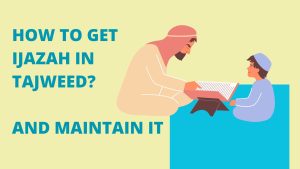
Ijazah In Tajweed: How To Get Ijazah In Tajweed And Maintain It?
the journey to obtaining an Ijazah in Tajweed requires patience, humility, and sincere dedication to the study of the Quran. Seek guidance from knowledgeable teachers, stay committed to regular practice, and approach the process with a genuine love for the Quran and its correct recitation.
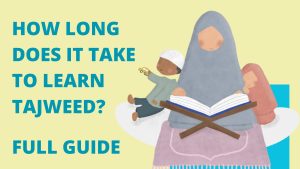
How Long Does It Take To Learn Tajweed? – Full Guide
How Long Does It Take To Learn Tajweed? On average, individuals often take a few months to a year of consistent and dedicated study to achieve a good level of proficiency in Tajweed.

How to Learn the Quran with Tajweed at Home? – Top 21 Tips
Learning the Quran with Tajweed at home is an admirable endeavor, and with the right approach, it can be a fulfilling and enriching experience.

Online Ijazah Course

Noorani Qaida Course

Online Recitation and Memorization Courses
Online arabic courses.

Islamic Studies Course
Online tajweed course.
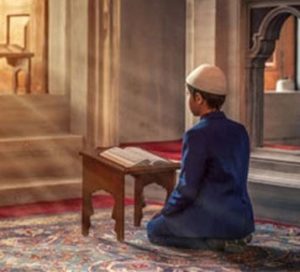
Online Quran Course

Online Quran Classes for Kids

Learn Noorani Qaida Online For Kids
Learn arabic online for kids, islamic studies course for kids.
Recent Posts

Arabic Harakat in Tajweed And Arabic Language Full Guide
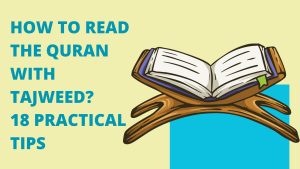
How to read the Quran with Tajweed? 18 Practical Tips
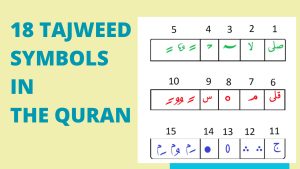
18 Tajweed Symbols In The Quran And 7 Tajweed Stop Signs With Image-Examples From The Quran

Best 8 Tajweed Books In English
+201066905182
Copyright © Bayan Al Quran Academy 2024
Imam Ali (ع) - The "SELF" of the Prophet Muhammad (ص) - Ramadan Reflections 2024 - Day 27 Living The Quran Through The Living Quran
- Religion & Spirituality
As we delve into the 27th day of this blessed month, we explore a profound Quranic verse from Surah Ale Imran (3), verse 61, which elucidates a historic encounter between Prophet Muhammad (peace be upon him and his family) and a delegation of Christians from Najran. Discover the fascinating background behind this verse, as Prophet Muhammad (peace be upon him and his family) engages in a theological dialogue with the Christians regarding the status of Prophet Jesus (peace be upon him). Explore the challenges faced by both parties and the significance of invoking Divine judgment through the practice of mubahala. Witness the gravity of truth and the pursuit of justice as Prophet Muhammad (peace be upon him and his family) stands firm in defending the message of monotheism. Delve into the implications of this verse in the context of Imam Ali (peace be upon him), shedding light on his pivotal role as a staunch defender of truth and justice within the early Muslim community. Uncover the profound spiritual and metaphysical connection between Imam Ali (peace be upon him) and Prophet Muhammad (peace be upon him and his family), as Allah identifies Imam Ali as the "nafs" of the Prophet. Explore the implications of this spiritual bond and Imam Ali's role as the guardian of the Prophet's message and mission. Join us as we unravel the intricate layers of wisdom embedded within this Quranic verse, guided by the teachings of Prophet Muhammad (peace be upon him and his family) and the Imams of Ahlul Bayt (peace be upon them all). Witness the timeless relevance of these teachings in navigating the challenges of today's world and upholding the principles of truth, justice, and spiritual enlightenment. Don't miss out on this enlightening journey of reflection and contemplation, as we draw inspiration from the profound wisdom of the Quran and the exemplary lives of Prophet Muhammad (peace be upon him and his family) and Imam Ali (peace be upon him). Join us in our quest for deeper understanding and spiritual growth in the final days of Ramadan.
- Episode Website
- More Episodes
- QAIM Institute
Top Podcasts In Religion & Spirituality
QuranMate- Quran, Ramadan 2024 9+
Build quran and dhikr habit, appyhigh technology llp, designed for ipad.
- Offers In-App Purchases
Screenshots
Description.
Elevate your spiritual journey as a Muslim with QuranMate – Your Spiritual Companion for accumulating Hasanat through Quran reading and Dhikr recitation. Main Points: 1. Build Quran and Dhikr Habits: QuranMate helps you establish consistent Quran and Dhikr habits. Receive daily reminders, track your progress, and develop a routine that nourishes your soul and strengthens your faith. 2. Accumulate Hasanat: QuranMate calculates your spiritual rewards (Hasanat) as you engage in Quran reading and Dhikr recitation, motivating you to strive for greater spiritual growth. 3. Importance of Hasanat: Earning Hasanat is essential for every Muslim as it serves as spiritual currency in the Hereafter. Hasanat are deeds that lead to blessings, forgiveness, and elevation of rank in Paradise, making them invaluable investments for the eternal life. 4. Guidance and Reflection: Discover the profound wisdom and guidance of the Quran as you immerse yourself in its verses. QuranMate encourages daily Quran reading, fostering a deeper connection to the divine message and promoting self-reflection. 5. Dhikr Recitation: Engage in the remembrance of Allah through Dhikr recitation, fostering mindfulness and spiritual awareness throughout your day. QuranMate tracks your Dhikr sessions, allowing you to see your progress and dedication. 6. Celebrate Milestones: QuranMate celebrates each milestone in your Quran reading journey. Receive congratulatory messages as you complete surahs, encouraging you to stay motivated and committed to your spiritual goal 7. Encouragement and Motivation: QuranMate provides daily reminders and motivational quotes to inspire you on your spiritual journey. Stay motivated to maintain consistency in your Quranic reading and Dhikr practices. 8. History of Islam: Explore the rich history of Islam through QuranMate's curated content. Learn about the life of Prophet Muhammad (peace be upon him) and key events in Islamic history, deepening your understanding of the faith. 9. Community and Sharing: Connect with like-minded individuals and share your spiritual journey with others. QuranMate allows you to share your achievements and milestones with friends and family, fostering a sense of community and support. Why Read Quran and Recite Dhikr: - Quran reading allows us to seek guidance, wisdom, and solace in the divine words of Allah. - Reciting Dhikr enhances mindfulness, strengthens our connection to Allah, and brings peace to our hearts. - Engaging in these practices during Ramadan amplifies their rewards and blessings, making it an ideal time to deepen our spiritual engagement. Download QuranMate now and embark on a transformative journey of spiritual growth and enlightenment Privacy Policy: https://sites.google.com/view/quranicprivacypolicy/home Terms of Use: https://sites.google.com/view/quranic-terms-of-use/home
Version 1.0.3
Bug fixes and performance enhancements
App Privacy
The developer, Appyhigh Technology LLP , indicated that the app’s privacy practices may include handling of data as described below. For more information, see the developer’s privacy policy .
Data Used to Track You
The following data may be used to track you across apps and websites owned by other companies:
Data Linked to You
The following data may be collected and linked to your identity:
- Contact Info
- Identifiers
Data Not Linked to You
The following data may be collected but it is not linked to your identity:
- Diagnostics
Privacy practices may vary based on, for example, the features you use or your age. Learn More
Information
- Quranic Monthly Subscription ฿99.00
- Quranic Yearly Subscription ฿699.00
- Quranic Weekly Subscription ฿99.00
- Developer Website
- App Support
- Privacy Policy
More By This Developer
AI Anime Photo Art Generator
Documents Reader Pro - PDF,XLS
Muslim Hub: Quran, Azan, Qibla
Kyral Art & Avatar Generator
Pixel Go - AI Photo Enhancer
You Might Also Like
Holy Quran - Dark Mode
Bulugh al-Maram English
Al Quran Offline
Manga Mania
Romantic Love Picture Wishes

IMAGES
VIDEO
COMMENTS
The Noble Quran has many names including Al-Quran Al-Kareem, Al-Ketab, Al-Furqan, Al-Maw'itha, Al-Thikr, and Al-Noor. We're hiring! Join the QuranFoundation team and contribute to our mission. Apply now! Read and listen to Surah Al-Isra. The Surah was revealed in Mecca, ordered 17 in the Quran. The Surah title means "The Night Journey" in ...
Journey of Al-Isra. Holy Prophet Muhammad, peace and blessing be upon him and his progeny began his historical night journey, along with the trusted protector of the revelation, the Angel Jibreel (pbuh) from the house of "Umm-e-Hani", with the aide of his steed al-Buraq. "After some time, Angel Jibreel (pbuh) stopped Holy Prophet Muhammad (saw ...
Quran Chapter 17 in English. The Night Journey. al-Isra'. Read, Listen, Search, Download. In the name of God, the Gracious, the Merciful. 1. Glory to Him who journeyed His servant by night, from the Sacred Mosque, to the Farthest Mosque, whose precincts We have blessed, in order to show him of Our wonders. He is the Listener, the Beholder.
This journey is mentioned in the first verse and again in verse 60. Chapter 17 contains an articulate and easy to understand set of God's commandments. The bulk of the Night Journey deals with two things, the Quran and Prophet Muhammad and the nature of his prophecy. The Children of Israel are also mentioned. Verses 1- 8 A journey by night ...
The journey of Al- Isra wal Miraj is one of the profound miracles of Prophet Muhammad Peace be upon him. The ultimate miracle being the Quran , notwithstanding its significance , the second most prominent miracle which is the unique, unexplained phenomenon of the history of mankind is the journey of Al-Isra wal Miraj.
Saheeh International. And We have made the night and day two signs, and We erased the sign of the night and made the sign of the day visible that you may seek bounty from your Lord and may know the number of years and the account (of time). And everything We have set out in detail. 17: 13. And (for) every. man. We have fastened to him. his fate.
Following is the translation of the first verse of chapter 17, Al-Israa, from the Quran that refers to this journey, followed by a detailed explanation of the verse by Sayyid Abul Ala Mawdudi. Holy is He Who carried His servant by night from the Holy Mosque (in Makka) to the farther Mosque (in Jerusalem) - whose surroundings We have blessed ...
The event referred to in this verse is known Miraj and Isra. According to authentic traditions, this took place a year before Hijrah. In the traditional and biographical literature, its details have been related by a large number (25) of the companions. ... In this verse, the Quran mentions only a part of the Journey, i.e. from Masjid-i-Haram ...
First, we will explain how the miracle of Night Journey and Ascension took place quoting from the verses of the Quran, hadiths and narrations from authentic resources; then, we will give answers to the questions that can come to the mind regarding the issue. Lexically "isra" means walking at night, traveling at night [1], "miraj" means ...
The event of Isra' and Mi'raj is the miraculous night journey of Prophet Muhammad s.a.w that happened in a single night. This miraculous journey is marked as an important milestone in the Islamic calendar. The journey of al-Isra' and al-Mi'raj consists of the journey from Makkah to Baitul Maqdis (Jerusalem), which is known as al-Isra ...
Al-Isra, also known as "The Night Journey," is the 17th chapter (Surah) of the Quran. It recounts a significant event in Islamic tradition where the Prophet ...
Isra and Miraj, two significant events in Islamic history, hold profound importance in the hearts of Muslims worldwide. These events, as described in the Quran and authentic Hadith, recount the miraculous night journey and ascension of Prophet Muhammad (peace be upon him) to the heavens. The phrase "Isra and Miraj" refers to the Night ...
Celebrated on the 27th of Rajab, Mehraj-Ul-Alam is a Muslim holiday in the event of Isra and Miraj. It is also known by the name Lailat-Al-Miraj. It is recognised as the day when Prophet Muhammad (PBUH) ascended to all the seven stages of heaven. It is believed that this was the day when an angel visited and Prophet Muhammad's (PBUH) chest ...
It is a two-part journey that took place on a night in the year of 620 C.E. Al-Isra' is the night expedition consisting of four halts and a final destination along with the companionship of the archangel Jibrīl and Mi'rāj is the escalation of the Prophet ﷺ to the heavens and beyond. Both of the aforementioned Quranic verses indicate the ...
Quran Growth Journey. Custom Quran Reading Goals. Create Goal. Learning Plans. See All Plans. Recently Read. Bookmarks. You do not have any reading sessions yet ... study, and learn The Noble Quran. The Noble Quran has many names including Al-Quran Al-Kareem, Al-Ketab, Al-Furqan, Al-Maw'itha, Al-Thikr, and Al-Noor. We're hiring! Join the ...
Quran, in this verse, gives us the spiritual understanding of sleep. It is a time when the soul leaves the body and is only partially connected to it for that time. ... Use it to remind yourself as you go to sleep that your soul is embarking on a journey towards God while you sleep. It is a taste of the ultimate journey to come. It also reminds ...
The Umma of Alhamdulillah presents The Quranic Verse Journey. The goal of this podcast is to help you start or end your day with a deep dive of the Quran. One day, One step at a time towards Quranic journey. The podcast is unstructured and uplanned random verses selected and directed towards you to relief your mind, heart and soul.
Quranic Reflection No 675. Āyat 73:6 - The Wonders of the Night Prayer April 5, 2024; Réflexion coranique n°432 Āyat 11 :32 - Rejet avec arrogance de la vérité April 4, 2024; Quranic Reflection No 674. Āyat 37:99 - The Journey towards God March 29, 2024
Exploring different themes and lessons from selected Quranic verses can be a fascinating journey of self-discovery and spiritual growth. The Quran, the holy book of Islam, contains timeless wisdom and guidance for all aspects of life. By delving into its verses, we can gain profound insights that resonate with our daily experiences. ...
The Quranic verses on Hajj encourage believers to embrace diversity, demonstrate solidarity, and embark on a transformative spiritual journey. Beyond the physical acts of worship, Hajj fosters a deep connection with the divine and strengthens the individual's faith, fostering a sense of humility, gratitude, and compassion
But if you are ill, on a journey, or have relieved yourselves, or have been intimate with your wives and cannot find water, then purify yourselves with clean earth by wiping your faces and hands. 2 It is not Allah's Will to burden you, but to purify you and complete His favour upon you, so perhaps you will be grateful. Surah.
Download your free Quran Journal PDF and embark on a journey of spiritual growth today. Quran journaling has become a popular way for us Muslims to connect with our faith and delve deeper into the teachings of the Quran. ... By reflecting on Quranic verses, you'll gain deeper insights into their meanings and how they apply to your life. 2.
February 10, 2024. Bayan Al Quran. Quran Verses about Learning: The Quran emphasizes the significance of seeking knowledge and understanding through various verses. Surah Al-Iqra (Surah Al-Alaq) emphasizes reading and learning, with the pen symbolizing knowledge (Surah Al-Iqra: 1-5). Surah Al-Zumar distinguishes between those with knowledge and ...
Don't miss out on this enlightening journey of reflection and contemplation, as we draw inspiration from the profound wisdom of the Quran and the exemplary lives of Prophet Muhammad (peace be upon him and his family) and Imam Ali (peace be upon him). ... As we delve into the 27th day of this blessed month, we explore a profound Quranic verse ...
- Swift Verse Search: Find specific verses instantly, making your spiritual journey more accessible and enriching. - Personalized Bookmarks: Mark your favorite verses and return to them with ease, enhancing your connection with the profound teachings of the Quran. - Offline Access: No internet connection is required!
Elevate your spiritual journey as a Muslim with QuranMate - Your Spiritual Companion for accumulating Hasanat through Quran reading and Dhikr recitation. ... Discover the profound wisdom and guidance of the Quran as you immerse yourself in its verses. QuranMate encourages daily Quran reading, fostering a deeper connection to the divine ...